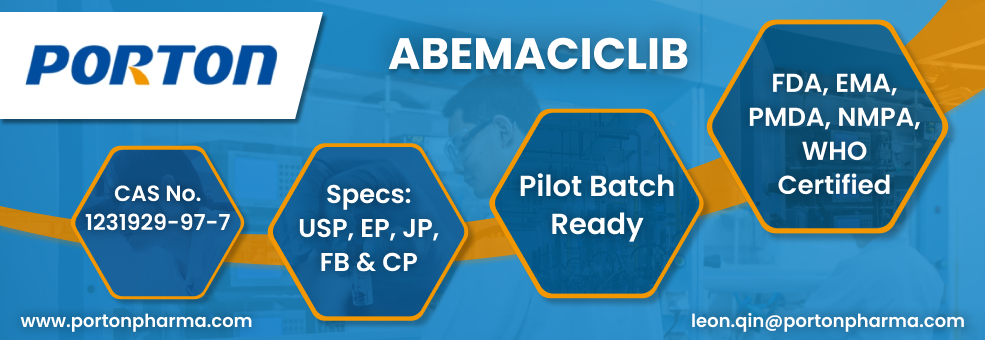Drug Master Files, or DMFs, are confidential documents that play a crucial role in the pharmaceutical industry. These files, submitted to the US Food and Drug Administration (FDA), contain detailed information about ingredients, manufacturing processes, and packaging of medicines. They help the FDA oversee drug quality.
Of the four types, Type II DMFs involve active
pharmaceutical ingredients (APIs) for both branded and generic drugs. The third quarter (Q3) of 2024 saw Type II DMF submissions set a new record. A total of 309 Type II DMFs were submitted to the FDA during this period, a substantial 24.6 percent increase over Q3 2023 (with 248 submissions). The second quarter of 2024 too saw a remarkable increase, with 237 Type II DMFs being submitted compared to 178 in Q2 2023.
View FDA DMF Filings in Q3 2024 (Power BI Dashboard, Free Excel Available)
China witnesses steep rise in
DMF submissions, beats India with maximum filings
In Q3 2024, China filed 153 DMFs submissions, marking a substantial 57.7 percent increase from the 97 submissions filed in Q3 2023. India maintained its strong position but fell to the number two spot with 110 DMFs, representing a modest 3.8 percent increase from 106 in Q3 2023. The US, which came a distant third, saw a slight decline in DMF submissions, with 13 filed in Q3 2024, as compared to 18 in Q3 2023.
For several years, India had a lead in Type II DMFs. Since 2020, which marked the start of the pandemic, we have noticed a gradual increase in DMFs filed by China. This year, China has surpassed India considerably in the first three quarters. During the first nine months of 2024, China submitted 372, while India filed 286 DMFs. If this lead is maintained in Q4, DMFs from China will surpass that of India in 2024.
Amongst European countries, Spain led with seven DMFs, followed by
Italy at four, and Germany and the Netherlands at three each. Among other
nations, Japan contributed six while Israel submitted four DMFs.
In company-wise tally, China’s Jiangsu East-Mab Biomedical Technology topped the list with an impressive 14 DMFs. On its heels were Indian companies — MSN at 13 DMFs, and Vamsi Labs and Hetero Drugs at nine DMFs each.
China’s Porton Pharma and Wuxi AppTec filed five,
while Shanghai Keze Yongxin Biotechnology, and Qingdao Glycogene Pharmaceutical contributed four submissions each. India's Maithri Drugs also submitted four.
Japanese company Santeja filed five. Overall, Asia accounted for nearly 90 percent, with China contributing a dominant 49.5 percent of all DMF submissions. India was at 35.6 percent, the US at 4.2 percent, while Europe contributed 6.5 percent.
View FDA DMF Filings in Q3 2024 (Power BI Dashboard, Free Excel Available)
Diabetes, obesity, cancer, women’s health drugs emerge as hot molecules in Q3 2024
In terms of molecules, semaglutide (used for the treatment of
type 2 diabetes and weight management) and relugolix (to treat prostate cancer
and uterine fibroids) saw six DMF filings each in Q3 2024, indicating
significant industry interest in these compounds.
Following closely behind were semaglutide’s competitor tirzepatide and overactive bladder
therapy vibegron, garnering four DMFs each. Finerenone (a non-steroidal drug for
chronic kidney disease associated with type 2 diabetes) and voclosporin (an immunosuppressant for lupus nephritis) saw three DMFs each.
The last quarter also witnessed the introduction of 14 molecules
with first-time DMFs. Among them were acetoxy empagliflozin, cabozantinib fumarate, tivozanib hydrochloride
monohydrate, diosmetin, trilaciclib, clenbuterol hydrochloride, fenoterol hydrobromide, tapinarof and fezolinetant.
Fezolinetant, with a DMF from Spain’s Moehs Iberica, is the active ingredient in
Astellas’ Veozah, which is the first non-hormonal treatment for
menopausal symptoms approved by the FDA. Tapinarof, filed by India’s Maithri Drugs, is used in Vtama, a novel
steroid-free psoriasis cream.
Other compounds that made their DMF debut include berotralstat, calcium phosphoryl choline
chloride, phloroglucinol dihydrate, belumosudil mesylate and trimethylphloroglucinol.
During Q2 2024, there were 19 drugs that saw DMF submissions for
the first time, including molecules like triptorelin, sorafenib, pralsetinib, trilaciclib dihydrochloride, resmetirom (hepatology) and teneligliptin hydrochloride hydrate (metabolic disorders).
View FDA DMF Filings in Q3 2024 (Power BI Dashboard, Free Excel Available)
GDUFA fee for FY 2025: The FDA’s Generic Drug User Fee
Amendments (GDUFA) is a law designed to speed access to safe and effective generic drugs to the public and reduce costs to the industry.
The fiscal year 2025 fee rates were published on July 31, 2024.
The FDA has revised fees under GDUFA III for all categories. While there is a slight increase in the DMF fee from US$ 94,682 in 2024 to US$ 95,084 in 2025, the ANDA fee has witnessed a significant jump — from US$ 252,453 in 2024 to US$ 321,920 in 2025.
FY 2024 and FY 2025 User Fee Rates
Generic drug fee category
Fees rates for FY 2024
Fees rates for FY 2025
Applications:
Abbreviated New Drug Application (ANDA)
US$ 2,52,453
US$ 3,21,920
Drug Master File (DMF)
US$ 94,682
US$ 95,084
Facilities:
Active Pharmaceutical Ingredient (API)—Domestic
US$ 40,464
US$ 41,580
API—Foreign
US$ 55,464
US$ 56,580
Finished Dosage Form (FDF)—Domestic
US$ 2,20,427
US$ 2,31,952
FDF—Foreign
US$ 2,35,427
US$ 2,46,952
Contract Manufacturing Organization (CMO)—Domestic
US$ 52,902
US$ 55,668
CMO—Foreign
US$ 67,902
US$ 70,668
GDUFA Program:
Large size operation generic drug applicant
US$ 17,29,629
US$ 18,91,664
Medium size operation generic drug applicant
US$ 6,91,852
US$ 7,56,666
Small business generic drug applicant
US$ 1,72,963
US$ 1,89,166
Our view
The highlight of the last few quarters has been the sharp rise in Type II DMF filings from China. The submission of a DMF is not required by law or any FDA regulation. FDA’s DMF guideline offers guidance on acceptable approaches to meeting regulatory requirements. Moreover, DMFs establish trust in APIs from lesser-known companies.
With a growing emphasis on compliance and quality assurance, it appears that Chinese drug companies are eager to demonstrate their commitment to high standards and build trust in the US market. And that’s good news for the pharmaceutical industry.








